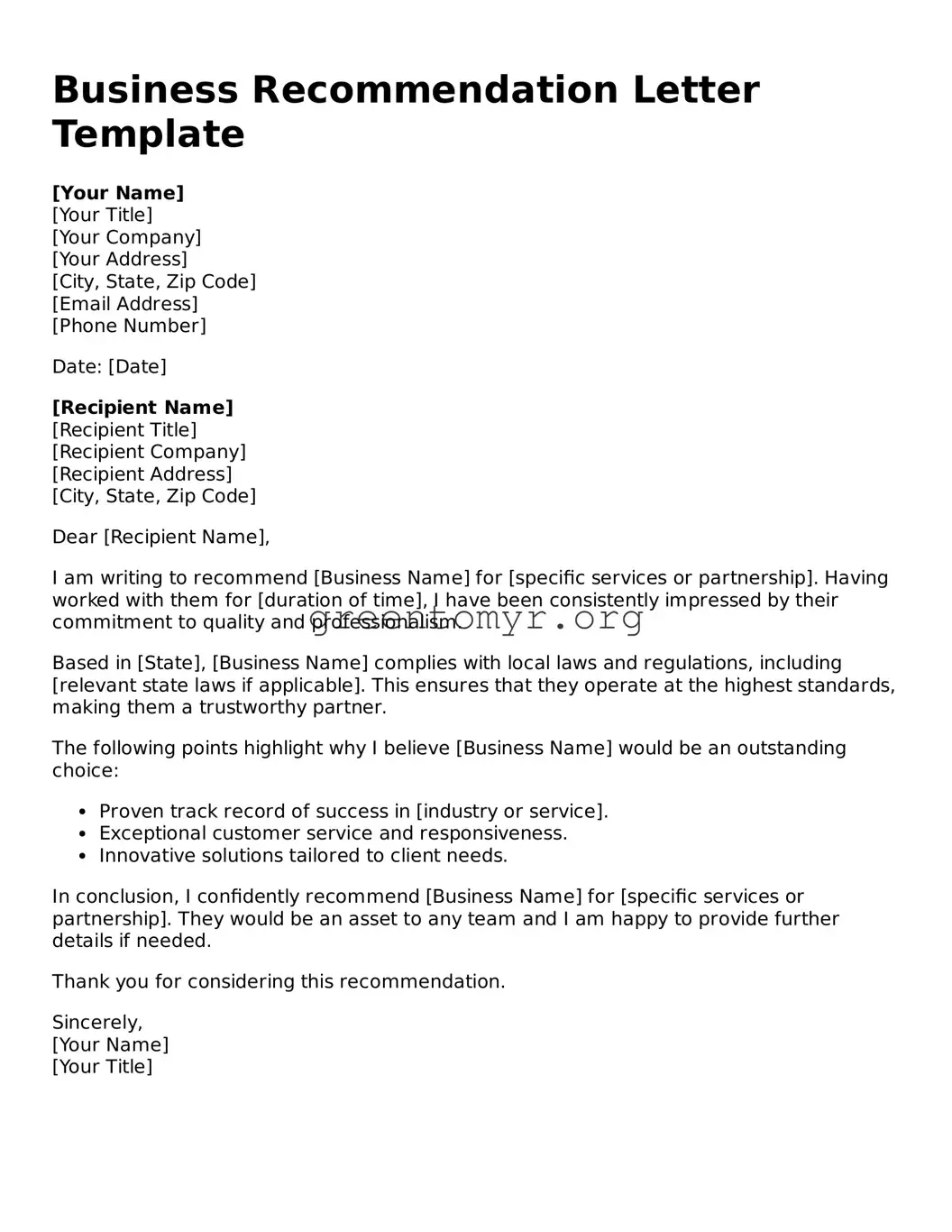Business Recommendation Letter Template
[Your Name]
[Your Title]
[Your Company]
[Your Address]
[City, State, Zip Code]
[Email Address]
[Phone Number]
Date: [Date]
[Recipient Name]
[Recipient Title]
[Recipient Company]
[Recipient Address]
[City, State, Zip Code]
Dear [Recipient Name],
I am writing to recommend [Business Name] for [specific services or partnership]. Having worked with them for [duration of time], I have been consistently impressed by their commitment to quality and professionalism.
Based in [State], [Business Name] complies with local laws and regulations, including [relevant state laws if applicable]. This ensures that they operate at the highest standards, making them a trustworthy partner.
The following points highlight why I believe [Business Name] would be an outstanding choice:
- Proven track record of success in [industry or service].
- Exceptional customer service and responsiveness.
- Innovative solutions tailored to client needs.
In conclusion, I confidently recommend [Business Name] for [specific services or partnership]. They would be an asset to any team and I am happy to provide further details if needed.
Thank you for considering this recommendation.
Sincerely,
[Your Name]
[Your Title]
